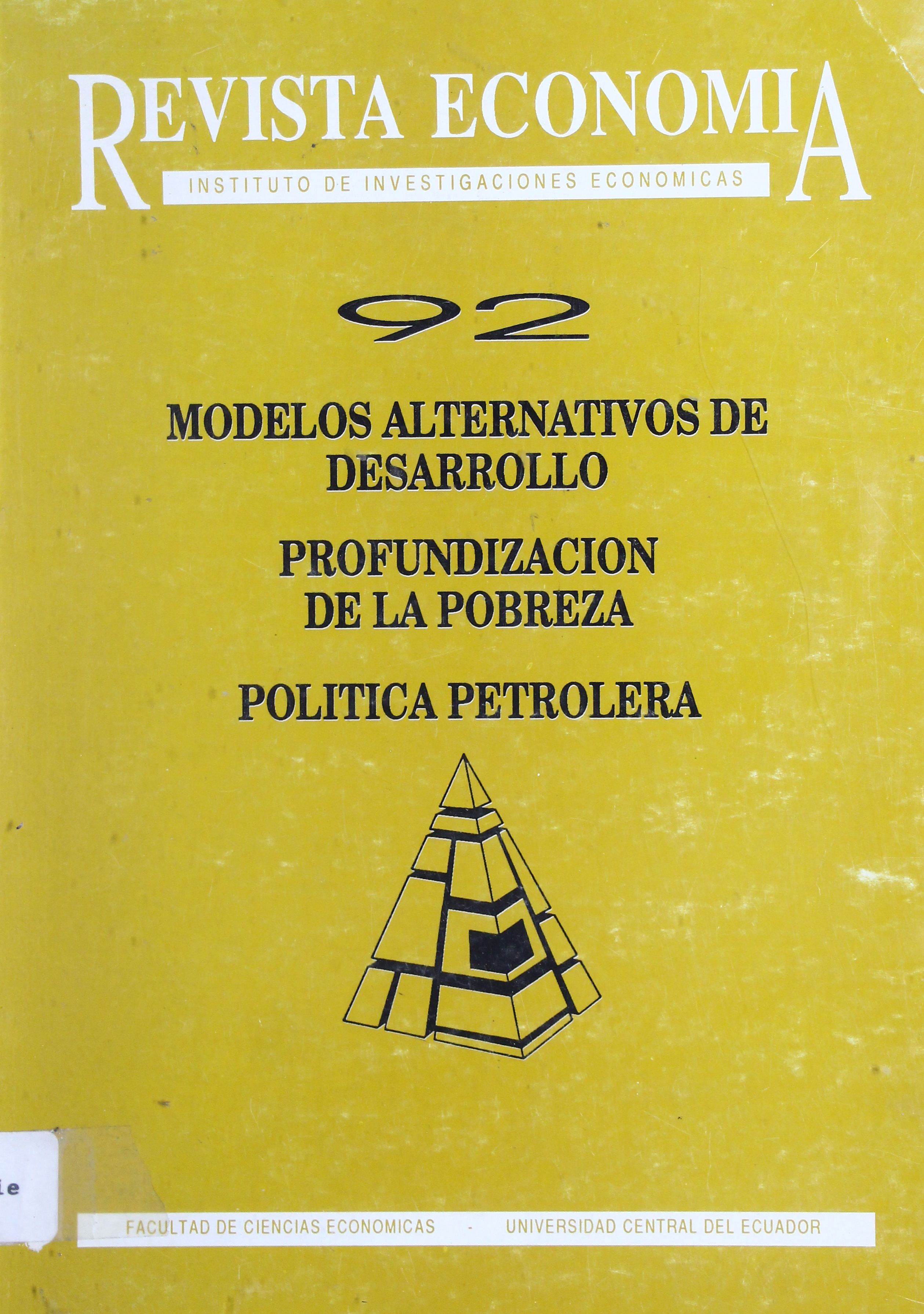Notas para una sociología de la corrupción
Main Article Content
Abstract
Este artículo fue escaneado por la Biblioteca Ecuatoriana Aurelio Espinoza Pólit.
La corrupción está de moda: puso en aprietos al gobierno socialista español; hace algunos meses, al gobierno democristiano de Alemania; provocó la renuncia del Primer Ministro japonés; Italia, no se ha quedado al margen, la "Operación Manos Limpias" intenta salvar la imagen de su desprestigiada clase política; la mafia y la camorra han extendido visiblemente sus influencias y controles en resortes importantes de los poderes regionales y transnacionales.
Downloads
Article Details

This work is licensed under a Creative Commons Attribution-NonCommercial 4.0 International License.
The authors who publish in this journal accept the following conditions:
- The authors retain the copyright and assign to the Economics Magazine the right of the first publication, with the work registered under Creative Commons Attribution-NonCommercial 4.0, which enables third parties to redistribute, commercial or non-commercial, of what has been published as long as the article circulates completely and without changes.
- Authors can make other independent and additional contractual agreements for the distribution of the article published in this journal (for example, add it to an institutional repository or publish it in a book) as long as they clearly and clearly specify that the article was published for the first time. once in Revista Economía. In case of reproduction, a note similar to the one presented below must be included: This text was originally published in the Revista Economía No.…, volume…, number of pages, year of publication.
- Authors are suggested to publish their work on the internet (for example, on institutional or personal pages) of the final version published by Revista Economía since this can lead to greater and faster dissemination of the published article.
References
(1) Moreno Ocampo, Luis: "En Defensa Propia. Como salir de la Corrupción", p. 28. Buenos Aires, Edit. Sudamericana, 1993.
(2) Cipolla, C.M. et al: "La Decadencia Económica de los Imperios". Madrid, Alianza Editorial, 1973.
(3) Naisbitt-Aburdene: "Megatendencias 2000". Bogotá, Edit. Norma, 1990.
(4) Dostoievski, Fedor: "Crimen y Castigo", p. 433. Quito, Edit. Libresa, 1990.
(5) Cf. "Los Hermanos Karamazov", cap. VI del Libro X. Barcelona, Edit. Sopena, 1976.
(6) Tolstoi, León: "Resurrección", cap. XXVIII. Barcelona, Edit. Sopena, 1969.
(7) Cf. "La verdadera vida", cap. XXIII. Barcelona, Edit. Obelisco, 1982.
(8) Sorman, Guy: "Los verdaderos pensadores del siglo XX", pp. 199-200. Buenos Aires, Edit. Atlántida, 1991.
(9) "Los cuatro lioros clásicos" de Confucio. Barcelona, Edit. Bruguera, 1978 (5o.ed.).
(10) Lao Tse: "Tao Te Shing". Buenos Aires, Edit. Leviatán, 1982.
(11) Anónimo "Bhagavad Gita", p. 57. Madrid, Edit. EDAF, 1988.
(12) Daisaku Ikeda: "El buda viviente", pp. 157-162. Buenos Aires, EMECE Edit, 1989.
(13) Platón: "Diálogos". México, Edit. Porrúa, 1978.
(14) Aristóteles: "Moral, a nicómano". México, Edit. Nacional, 1973.
(15) Séneca: "Obras Morales. Selección". México, Edit. Nacional, 1973.
(18) Einstein, Albert: "Mis ideas y opiniones", p. 10. Barcelona, A. Bosch Editor, 1983.

